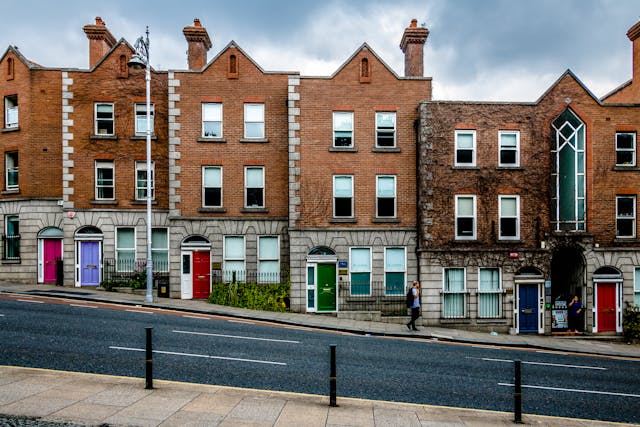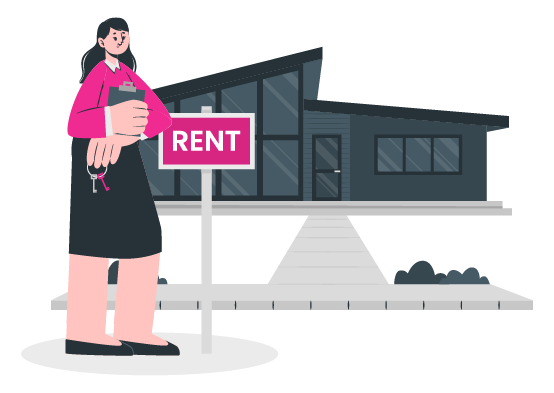Buying property as an expat is an exciting leap but it can also feel like navigating a maze, especially in a new country. If you’re eyeing Ireland’s scenic cities or countryside for your next home or investment, it’s crucial to understand the local landscape before signing on the dotted line.
At FindQo.ie, we work with expats across the globe who are eager to make Ireland their base. From Dublin townhouses to rural retreats in Galway or Cork, Ireland’s real estate market has much to offer. But before you dive in, here’s what every expat needs to know before buying property.
Understand Ireland’s Property Landscape
The Irish property market has seen strong growth, particularly in key cities like Dublin, Cork, Limerick and Galway. Demand is high among both domestic buyers and foreign investors, and with good reason. Ireland boasts stable political conditions, a robust legal system, and strong rental yields in urban centres.
However, property types and pricing vary widely. City-centre apartments are in high demand among professionals and students, while larger homes in the suburbs or countryside appeal to families or retirees.
At FindQo.ie, you’ll find a wide range of listings tailored to different lifestyles and investment goals, complete with market trends and insights.
Legal Requirements for Expats
The good news? Expats are allowed to buy property in Ireland even if they’re not residents. There’s no legal restriction on foreign ownership. However, you’ll need a Personal Public Service Number (PPSN) to complete the purchase and pay taxes.
You should also budget for legal fees and consider hiring a solicitor early in the process. A solicitor will help with conveyancing, title checks, and liaising with the seller’s agent. If you’re buying a second-hand home, they’ll also ensure there are no hidden issues with the title or planning permissions.
Mortgages are available to non-residents, although the process can be more complex. Irish banks usually offer 60–70% loan-to-value for non-resident buyers, meaning you’ll need a 30–40% deposit.
Know the Local Property Taxes and Fees
When buying property in Ireland, you’ll encounter a few key charges. Stamp Duty is a one-off government tax typically 1% of the property value for homes under €1 million. Other costs may include legal fees, valuation charges, and property surveys.
If you’re planning to rent out the property, you’ll need to register with the Residential Tenancies Board (RTB) and pay income tax on rental earnings.
Planning ahead can save you from last-minute financial surprises. The FindQo.ie platform includes guides on local taxes and how to estimate total purchase costs.
Choose the Right Location for Your Lifestyle
Location is everything especially for expats who want their new home to match their lifestyle. Dublin is vibrant and cosmopolitan, ideal for young professionals or investors. Cork and Galway offer cultural charm with slightly lower living costs. If you’re looking for more peace and space, towns in counties Clare, Mayo, or Kerry offer tranquil settings near nature and the sea.
Access to public transport, healthcare, schools and community support should factor into your decision. At FindQo.ie, our location guides make it easy to compare neighbourhoods based on your needs whether you’re a retiree, remote worker, or growing family.
Beware of Language in Contracts and Local Terminology
Even if you speak fluent English, Irish property documents may contain unfamiliar legal terms. “Freehold” and “leasehold,” for instance, refer to very different property rights. A leasehold may have ground rent charges or restrictions on alterations.
Always ask your solicitor to explain any unclear clauses. Some estate agents may also use local slang or shorthand terms in listings FindQo.ie simplifies property ads with clear definitions and explanations tailored to expats.
Inspect Before You Invest
It’s always wise to view the property in person if possible or send a trusted representative. Irish properties, especially older buildings, may come with structural quirks, outdated wiring, or damp issues. A certified building survey can highlight any costly surprises.
Video walkthroughs and drone images on FindQo.ie help bridge the gap for overseas buyers, but nothing replaces a good inspection.
The Buying Process Step by Step
Here’s a quick overview of what buying property in Ireland typically involves:
- Get mortgage approval (if applicable)
- Hire a solicitor and make an offer
- Conduct a survey and valuation
- Sign the contract and pay a deposit (usually 10%)
- Finalise financing and complete the sale
Whether you’re planning to relocate, invest, or just secure your Irish dream home, FindQo.ie is your expert partner. Start your property search today and get matched with the best listings, local insights, and trusted legal guidance.

